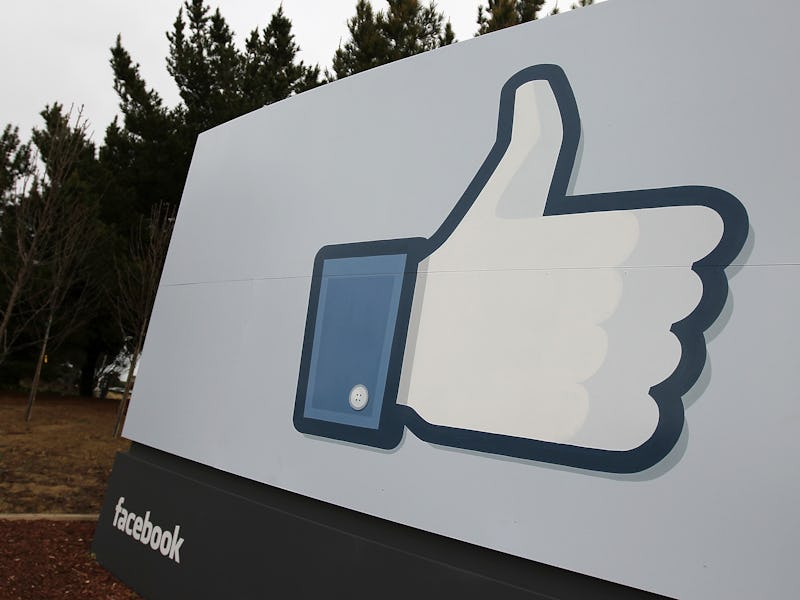Facebook's New 'Dislike' Button Will Wreak Havoc on the World
The coming revolution in anti-social media.

It’s official: In the near future, Facebook is going to roll out a “dislike” button. According to Mark Zuckerberg, Facebook has been waffling on the idea for years, debating its ethics and implications, but the company decided to move forward because people want “the ability to express empathy” during life’s curveballs. In other words, Mark Zuckerberg thinks he’s making a simple move to better enable you to express your sadness that your friend’s dog died, lest they misconstrue your “like” as happiness at their RIP Fluffy status. Zuckerberg doesn’t seem to realize that this simple decision is about to change the fabric of the very internet — just as Facebook did.
Assuming the “dislike” button functions in the same way as the “like” button, here are some ways this will shake up the world.
It could put Facebook in the position of a referee, whether it wants to be or not.
Zuckerberg thinks the dislike button will better enable people to sympathize with each other during trying times. That’s all very well, but it will also enable them to exact revenge. That ex you had a messy breakup with just got engaged? Now you can click dislike on their engagement. That old classmate you always hated just met their favorite celebrity and excitedly posted a picture? Shit on that moment in their life, go ahead and throw it a dislike. Facebook is not unaware of this potential maelstrom of trolling — it sat on this decision for a long time for that very reason. In a previous statement about his decision to withhold a dislike button, Zuckerberg said,
Some people have asked for a dislike button because they want to say, ‘That thing isn’t good.’ And that’s not something that we think is good for the world. So we’re not going to build that.
In a Q&A today, Zuckerberg did not seem to have a change of heart, because he maintained, “we don’t want to turn Facebook into a forum where people are voting up or down on people’s posts.”
Presumably, then, Facebook is working on a system of checks and balances for their dislikes. So the options are that people become better at self-censorship, Facebook becomes troll capital or Facebook steps in when discussions go sideways. None bode well.
The line between people and brands will be further blurred.
It’s an open question now as to whether people will be able to dislike products, companies, and causes. If you dislike a public figure, say, are you then disliking the person? The ideas they stand for? Their work? In the digital age, the line between people and brands grows ever thinner, as popular figures like Miley Cyrus, Taylor Swift, or Beyonce are barely people — they’re brands.
To those who are dismayed by the phenomenon of People As Brands, the “dislike” button is about to exacerbate it. Again, here’s the line between trolling and genuinely expressing a negative sentiment — one that might be honest and useful, but which a brand or Facebook might have no interest in propagating.
It will change the media.
Just like people and brands, the media have Facebook pages. Take our own company, Inverse. If someone dislikes our Facebook page are they disliking articles about the future and irreverent cultural musings peppered with wildly entertaining clips, mingled with interview pieces, and the occasional fanboy journey? Or perhaps they dislike one of our writers? Or maybe they’re tired of seeing certain topics everywhere and dislike their ubiquity.
Either way, that raises the question, is this crueler or kinder than the comments sections on any given article? Our own site does not have a comment section, but scroll down to the bottom of any Salon or Gawker article and you’ll wade through a dive bar of vitriol. Internet writers learn to grow a thick skin, but will writers and media members now have to pander to dislikes in addition to traffic? Will “likability” become the new clickbait? Will CNN have to do even more absurd wizardry to make the news sexier?
Its ambiguity will ruin people’s days.
Let’s say you see, in your newsfeed, a life update that a friend you haven’t talked to in five years has graduated from a certain school. You have nothing against the person and their achievement, but you hate that school, so you click “dislike.” Maybe you had a negative experience at that school, or maybe you don’t buy into the idea of college as a system and think it’s a bullshit scheme that contributes to a toxic socioeconomic pyramid, and you’re drunk Facebooking while bitterly muttering to yourself and hand-writing your personal manifesto (just a regular Saturday night). If you meant the second, but the person construes it as the first and it ruins their day, does it really matter what the intention was?
Zuckerberg says the “dislike” button’s purpose is to be encouraging. It certainly will encourage jerks to dislike ideas, institutions, and brands. But jerks in turn can have their own ideas disliked, creating a spiral of slap-fighting that will be familiar to anyone who has had any passing experience online — only magnified. In that regard, it will create a throughly unpleasant internet but one we might have brought upon ourselves. Either that, or it will prompt a Social Network sequel. Then, when that comes out, you can dislike its page.